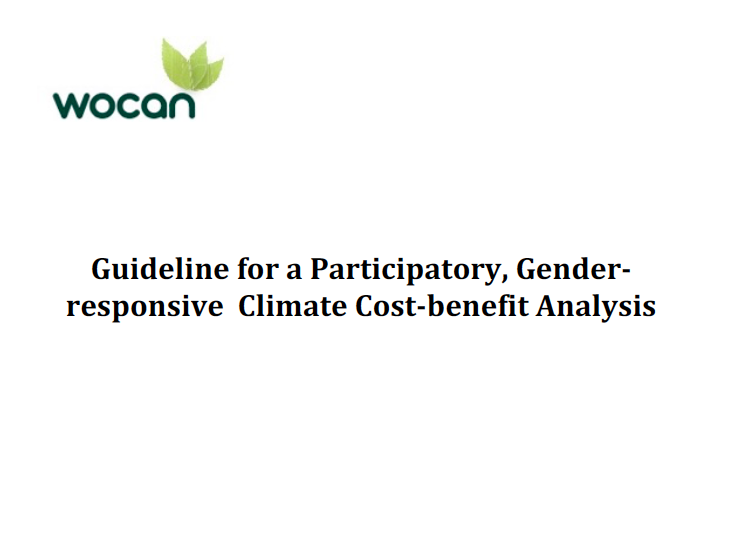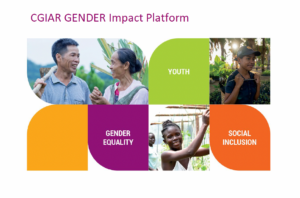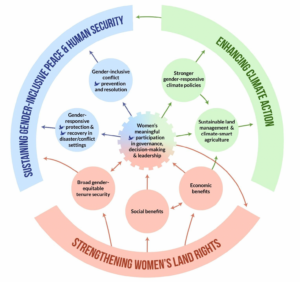There is a great demand to address the need for providing policy planners with information on costs and benefits of proposed actions on climate change. What is also critical is to provide equal priority to social impact assessment, rather than viewing these impacts as “intangibles”, that are outside the parameters of a cost- benefit analysis. Cost benefit analysis (CBA) needs to go beyond measuring financial aspects in order to capture critical benefits and costs, that may not be monetizable, to provide a realistic picture of how women and men perceive climate impacts.
In order to enable planners to obtain such an understanding, the UNDP Regional Office for Asia/Pacific commissioned WOCAN to develop a gender-responsive Climate Change Benefits Analysis tool and provide training on its use to key government officials within ministries responsible for climate finance. UNDP’s Strengthening the Governance of Climate Change Finance to Enhance Gender Equality programme (2017-2022) deepens and broadens the reforms around national planning and budgeting process in Asia-Pacific countries. WOCAN developed and field-tested a methodology based on consultations with community members , officials and other stakeholders in Nepal in late 2019 to produce this tool




